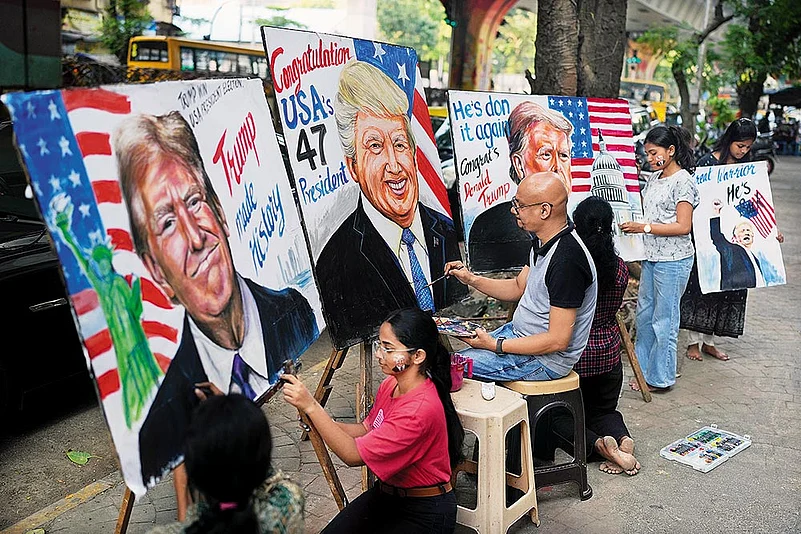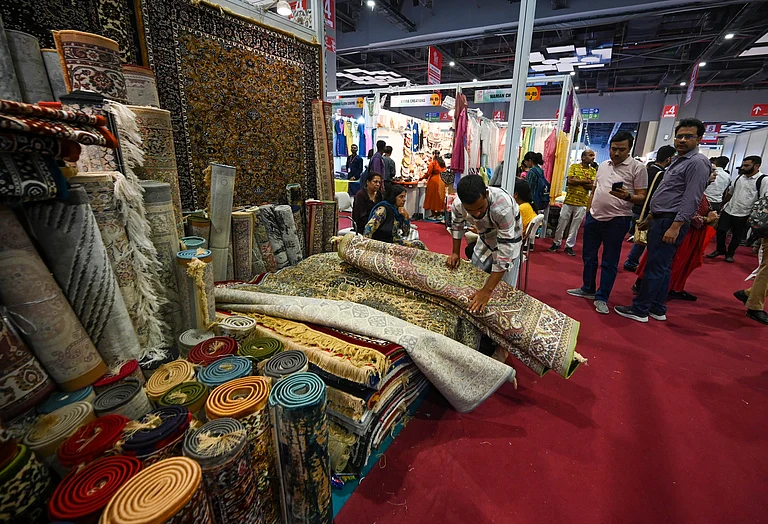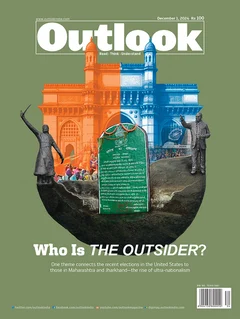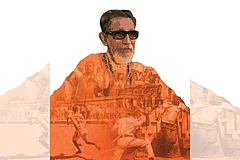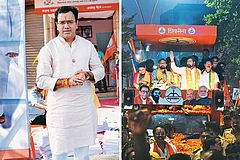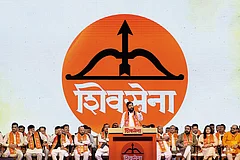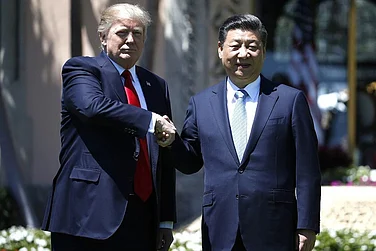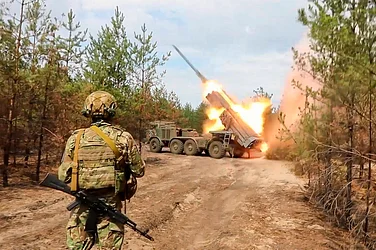The United States still exerts great influence on global developments, even though it does not dominate them as much as before. It is still the biggest military, economic and technological power. Its policies, therefore, shape the international discourse on cross-cutting global issues.
This explains the great international interest in the outcome of the presidential election in the US, with Donald Trump back in power.
Trump, seen as unpredictable and mercurial, took positions in his first term that were considered highly disruptive even by his allies. He questioned the North Atlantic Treaty Organization’s (NATO) relevance, wanted Europe to bear more burden for its own security, viewed the European Union (EU) as an economic rival and supported Brexit. The fear is that in his second term, he may become more assertive towards Europe. His willingness to quickly find a solution to the Ukraine conflict has deeply unnerved President Volodymyr Zelensky and the Europeans.
Trump has spurned multilateralism. In his first term, he walked out of the Paris Climate Change Agreement, the WHO, the UNESCO, the Trans-Pacific Partnership project and the nuclear agreement with Iran. He could once again walk out of the Paris Agreement, after the Joe Biden administration rejoined it. His robust support for the US expanding the drilling of oil and gas to be able to dominate the global energy scene bodes ill for climate change discussions. He will put more pressure on India to buy more US oil and Liquefied Natural Gas (LNG).

During his first term, the United States Trade Representative (USTR) weakened the World Trade Organization (WTO). We could have problems with the US on WTO reforms and preserving its role in guaranteeing a rule-based global trade order. Trump believes that globalisation has damaged America’s manufacturing base; he wants US corporations to invest in the US and create jobs locally, as part of his “on-shoring” strategy. How this may affect India seeking to attract US supply chains as part of “friend shoring”, remains to be seen.
Trump opposes US military interventions abroad, believing that these had drained America’s wealth. Yet, he is a very strong supporter of Israel and might seek to toughen sanctions on Iran. This has implications for India’s interests in the region.
He is ready to deter China strategically, as he sees it as engaging in a strategic, economic and cultural Cold War against the US, with the compliance of Wall Street, Hollywood and Big Tech. Eliminating supply chains in medicine, silicon chips, rare earth minerals, computer motherboards, military components, etc, from China is the goal.
India should welcome some of the key appointments that Trump has announced.
These are part of the many reasons why there is a great interest in what his second term holds for US foreign policy. Trump believes that during his first term, he chose members of his team who did not prove to be loyal to him. This time, he wants to choose only “loyalists”. He intends to use the experience of his first term to guide him during the next one.
He will try to implement his Make America Great Again (MAGA) philosophy of social conservatism, corporate tax cuts, trade protectionism, immigration restrictions and nationally oriented foreign policy options. This includes eradicating “wokeism”, every element of CRT (Critical Race Theory) and DEI (Diversity, Equity and Inclusion) in government institutions, and targeting Big Tech US companies that have promoted this Left wing “progressive” agenda.
India’s Foreign Minister S. Jaishankar is not wrong in saying that many countries are nervous about Trump returning to power, but India is not one of them. India dealt with the first Trump presidency with pluses and minuses. Prime Minister Narendra Modi had established a close personal rapport with Trump. India was designated as a Major Defence Partner of the US in 2016, and in 2018, India was moved into Tier-1 of the US Department of Commerce’s Strategic Trade Authorization licence exception. The Quad was upgraded to the political level.
Advancing India-US relations should remain a goal of US foreign policy. India is seen as an emerging economic partner, and, as a Quad member, a security guarantor of key routes in the Indian Ocean.
On the economic side, Trump had, in his first term, excluded India from the Generalized System of Preferences, imposed tariffs on India’s steel and aluminium exports to the US, and labelled India as a tariff king—a charge that he has repeated during his election campaign. We can expect pressure on the economic front during his second term. Robert Lighthizer, who is strongly protectionist in his thinking and advocates the liberal use of tariffs to advance US economic interests, is set to take charge of defining America’s trade policy. As USTR in Trump’s first term, he was difficult with India.
India should welcome some of these key appointments that Trump has announced. Marco Rubio, nominee for the post of Secretary of State, had in July 2024 introduced the US-India Defence Cooperation Act in the Senate that proposes more robust defence, space and technology cooperation with India, an exemption from Countering America’s Adversaries Through Sanctions Act (CAATSA), and restricted US assistance to Pakistan.
The nomination of Michael Waltz, as the National Security Adviser (NSA) would be a plus point for India as in his position as the Republican Co-chair of the India Caucus, he is familiar with India-related issues. He has described ties with India as the most significant strategic partnership of the 21st century. In his position, he was in close contact with the Indian diaspora. He should, as NSA, chair the iCET (the US-India Initiative on Critical and Emerging Technology), which is a vital part of the emerging technological ties between India and the US.
Tulsi Gabbard, who adopted Hinduism from her mother, and took oath as a Congresswoman on the Bhagavad Gita, is an old friend of India. As Director of National Intelligence, she would have close access to Trump and on many intelligence-related issues and should improve cooperation between India and the US. Hopefully, this cooperation would extend to placing curbs on anti-Indian activity on US soil. This has a bearing on the G. S. Pannun and H. S. Nijjar affairs, on which the public berating of India should end. Canada’s Justin Trudeau, who is disliked by Trump, may receive less US encouragement.
Pete Hegseth, the nominee for the Defence Secretary’s post, is a passionate supporter of Israel. Our own close relations with Israel should be helpful in building some rapport with him. However, Trump’s own strong support for Israel, backed by an evangelical-like support of Hegseth, may mean more turmoil in West Asia, which would put some strain on our policy towards this region where we have vital interests. Hegseth will be part of the 2+2 Dialogue between India and the US comprising Foreign and Defence ministers from both sides. We will have to build a rapport with him.
The key nominees to Trump’s new team are anti-China hawks. While this will be helpful to us in building stronger deterrence against China, and India’s geopolitical value to counter China will be seen as important, we will have to be careful not to lose our margin our manoeuvre in handling China as a result of undue US pressure when the process of sorting out tensions with Beijing has begun. Our participation in BRICS and SCO forums gives us strategic room that we must preserve.
All in all, we should be able to handle Trump’s second term reasonably well.
(Views expressed are personal)
MORE FROM THIS ISSUE
Kanwal Sibal is former foreign secretary of India






